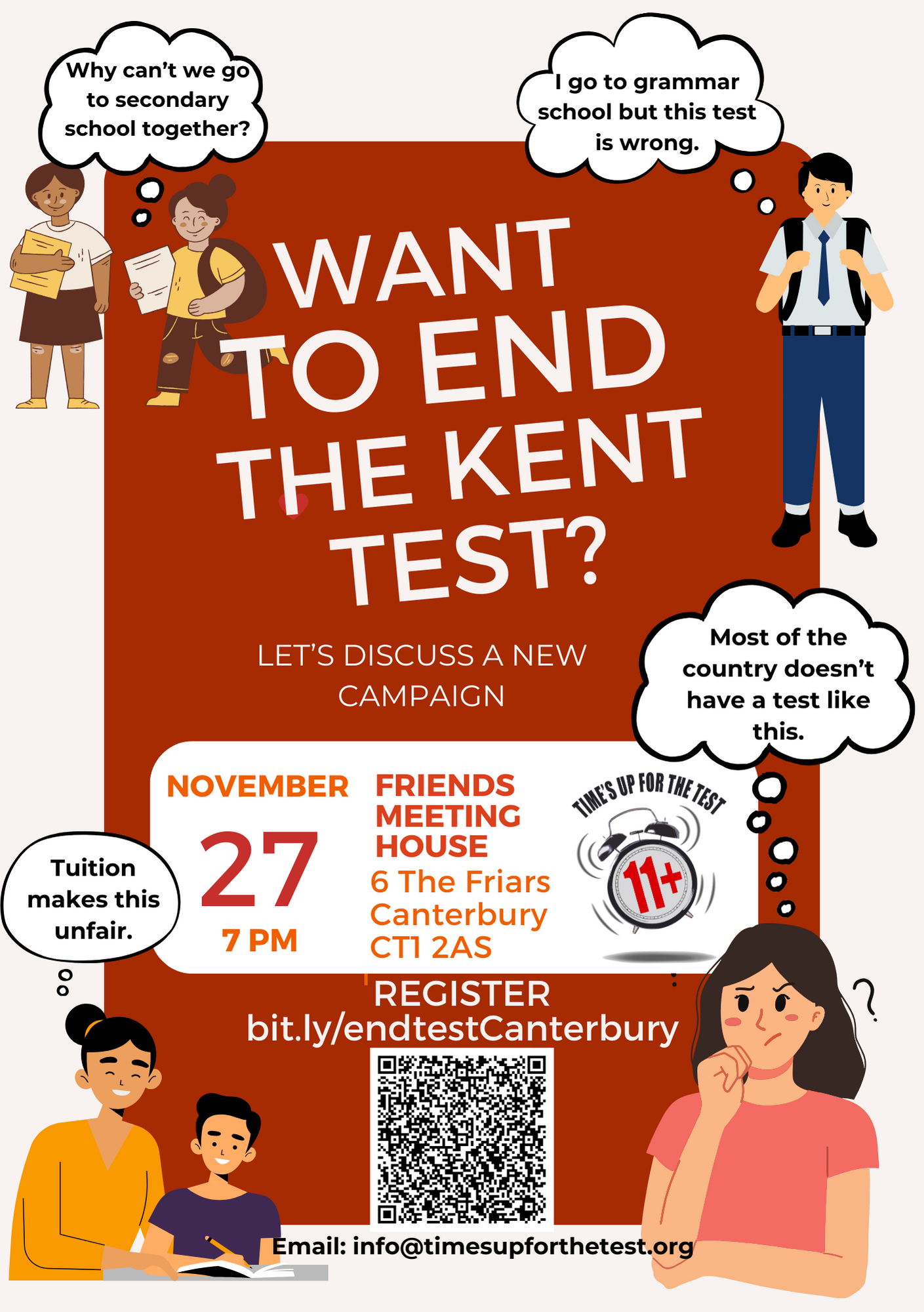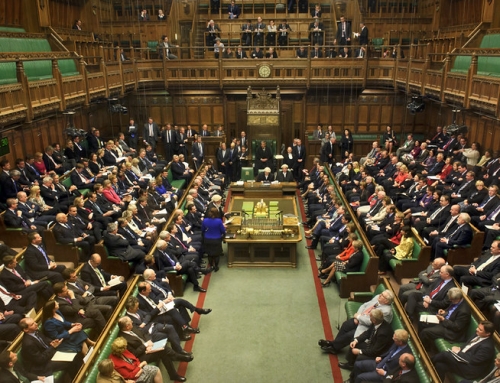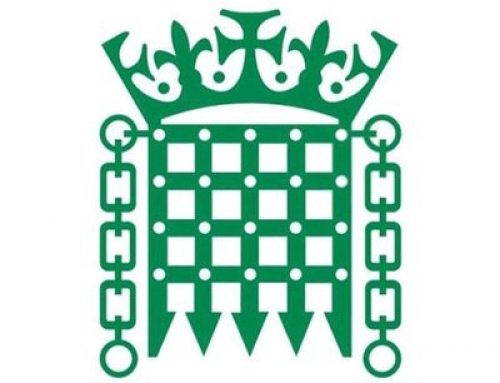 The Time’s Up for the Test (TUFTT) campaign to end the 11+ is holding its first grassroots event in Kent to build support to end selection in the county. TUFTT was launched last year with the support of the Mayor of Greater Manchester, Andy Burnham, and the former BBC Director-General, Greg Dyke. The campaign has also won the backing of psychologist Dr Tara Porter and the former OFSTED Chief Inspector, Michael Wilshaw.
The Time’s Up for the Test (TUFTT) campaign to end the 11+ is holding its first grassroots event in Kent to build support to end selection in the county. TUFTT was launched last year with the support of the Mayor of Greater Manchester, Andy Burnham, and the former BBC Director-General, Greg Dyke. The campaign has also won the backing of psychologist Dr Tara Porter and the former OFSTED Chief Inspector, Michael Wilshaw.
Now the group is keen to grow support in Kent, and will hold the first of a series of meetings in Canterbury on November 27th. The meeting aims to explore how the Kent Test can be ended, with the group pointing out that “most of the country ditched 11-plus testing decades ago, and never looked back.”
Jo Bartley, a Whitstable-based campaigner and secondary school governor, said: “I couldn’t believe how unfair Kent’s system is after growing up in Yorkshire where everyone simply chose a secondary school with no selection tests at all. My daughter failed the Kent Test in 2011 and I noticed a stark difference in school quality in the Canterbury area. All the schools she had a realistic chance of attending were graded by OFSTED as ‘Requires Improvement’ while most of the grammar schools were graded as ‘Outstanding’. Why should a test result give better school options to some children and not others?
There are now some great non-selective schools locally, but it is still the case that we have a divided system for absolutely no reason. I would hate to think that this awful system might still be in place for my daughter’s children. Most of the country ditched 11-plus testing decades ago and never looked back. Kent is stuck in the past, and this system desperately needs reform. An average Kent family with two children will spend at least £1,600 on private tutors, which is more than many families can afford. It’s plain wrong that we have a school system that gives advantages to wealthier families.”
Jack Deasley of TUFTT said: “I failed my 11-plus but I’m currently studying at Cambridge University. It’s a ridiculous system to test and divide children when they’re still in primary school. We know the Kent Test ends up splitting children up mostly according to their background, with non-selective schools educating many more deprived pupils than grammar schools. If we compare results for Kent with those of socially similar counties, it’s clear that non-selective areas perform better than selective Kent.
We know that there is support for ending the Kent Test, so the meeting is looking for ideas to win popular approval. We hope our meeting will be attended by people who believe, as we do, that offering an 11-plus test and grammar schools is a hopelessly outdated system. We intend to create a campaign to change minds in Kent, and to persuade a new government to act.”
Department for Education statistics show that Kent’s secondary school results are below average with Pupil Progress in Kent at – 0.11, compared with a national average of 0. As Andy Burnham argues, grammar schools are socially divisive without any compensatory gain.
The ‘Let’s End the Kent Test’ meeting is at the Canterbury Friends Meeting House on November 27th at 7pm. Attendees should register in advance and can find more information HERE.




